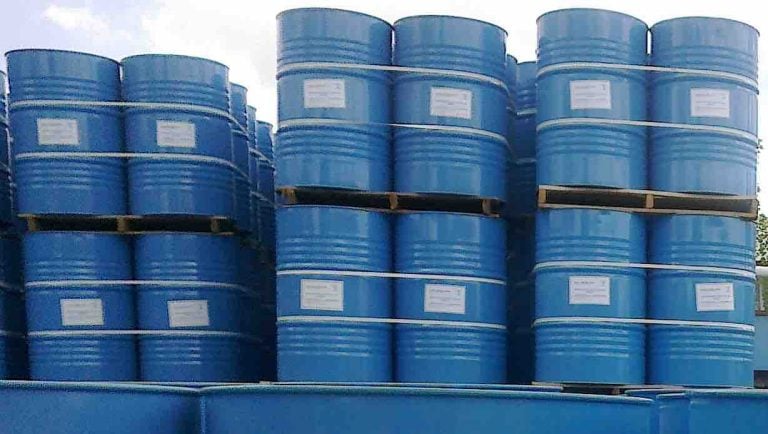The ability to source TEG from major petrochemical hubs like Iran, the UAE, and Turkey has streamlined global supply chains, offering businesses reliable, high-quality TEG deliveries. With competitive pricing, strategic locations, and advanced shipping infrastructure, these countries are well-positioned to meet the increasing demand for TEG across different markets.
Rate this page

We are exporter of Triethylene Glycol: Applications, Delivery, and Packaging
Triethylene glycol (TEG) is a versatile chemical compound with widespread applications across numerous industries. Whether used as a dehydration agent, antifreeze, solvent, or air sterilization agent, its demand remains high in sectors like oil and gas, pharmaceuticals, and manufacturing. This guide will explore the various uses of triethylene glycol, its packaging and delivery options, particularly from major suppliers in Iran, the UAE, and Turkey, as well as an analysis of its significance in global trade. As industries continue to rely on this compound for its chemical properties, understanding how it is supplied, stored, and handled is essential for maintaining quality and ensuring safe use.Analyzing the Global Demand for Triethylene Glycol
Triethylene glycol’s demand stems from its chemical versatility. Its hygroscopic (water-absorbing) properties make it indispensable in natural gas dehydration, while its relatively low toxicity has expanded its use in applications like air sterilization and personal care products. The global demand for TEG is directly influenced by the growth of industries that rely on energy, chemical processing, and automotive sectors. Countries like the United States, China, and European nations are major consumers, but the production hubs for TEG have shifted in recent years. Iran, the United Arab Emirates (UAE), and Turkey have become significant players in the global supply chain due to their well-established petrochemical industries.Delivery of Triethylene Glycol from Iran, UAE, and Turkey
Iran Iran, with its abundant natural gas and oil reserves, plays a critical role in the production and export of triethylene glycol. Petrochemical complexes such as those in Bandar Imam and Asaluyeh produce high-purity TEG. Iran’s petrochemical industry is well-positioned to meet global demand, particularly in the Middle East and Asia. Despite sanctions, Iran has maintained strong trade ties with various countries, exporting TEG via land, sea, and air. Iranian suppliers generally offer TEG in bulk shipments, typically in ISO tanks or 200-liter steel drums. Delivery from Iran can take longer due to international shipping regulations and sanctions, but its proximity to Europe, Asia, and Africa makes it a competitive supplier. United Arab Emirates (UAE) The UAE has rapidly developed into a major hub for chemical exports due to its modern infrastructure and strategic location. With world-class ports such as Jebel Ali in Dubai, the UAE provides fast, efficient shipping routes to Europe, Asia, and Africa. The UAE also benefits from strong regulatory frameworks that ensure the safe handling and export of chemicals like triethylene glycol. TEG is available from multiple suppliers in the UAE, with packaging options tailored to specific customer needs. For larger orders, bulk ISO tanks and flexi-bags are common, while smaller quantities are shipped in drums or Intermediate Bulk Containers (IBCs). The UAE offers some of the shortest lead times for TEG deliveries, making it a preferred choice for industries that require prompt and reliable shipments. Turkey Turkey’s strategic location between Europe and Asia makes it an ideal point for triethylene glycol exports. The country boasts a strong chemical manufacturing sector, with TEG production facilitated by its proximity to oil-producing nations. Turkey’s free trade agreements with the EU and several Middle Eastern nations make it a highly attractive option for TEG buyers in those regions. Deliveries from Turkey are made through well-developed shipping networks, with options for both overland trucking and sea freight. Like the UAE, Turkey provides various packaging solutions to suit different order sizes. ISO tanks are often used for bulk deliveries, while drums or IBCs are favored for smaller shipments. Turkey’s competitive pricing and short transit times to Europe give it a unique edge in the global TEG market.Packaging and Handling of Triethylene Glycol
Proper packaging and handling of triethylene glycol are crucial to maintaining its quality during transport and storage. TEG is hygroscopic, meaning it absorbs moisture from the air, so it must be stored in sealed containers to prevent contamination. Suppliers in Iran, the UAE, and Turkey take these precautions seriously to ensure the product arrives in pristine condition.Common Packaging Formats for Triethylene Glycol
- ISO Tanks: Ideal for bulk shipments, ISO tanks are stainless steel containers specifically designed for the transport of liquids. They offer a capacity of up to 25,000 liters, making them suitable for large-scale industrial orders.
- Steel Drums (200 liters): Steel drums are a popular choice for medium-sized orders and are commonly used for TEG. Each drum is sealed tightly to prevent leakage and moisture absorption.
- Intermediate Bulk Containers (IBCs): These large, square containers can hold up to 1,000 liters and are favored by industries that need smaller quantities but still want efficient storage solutions.
- Flexi-bags: Flexible bags housed within shipping containers, offering an alternative bulk packaging solution. These are suitable for long-distance shipments where weight considerations are crucial.